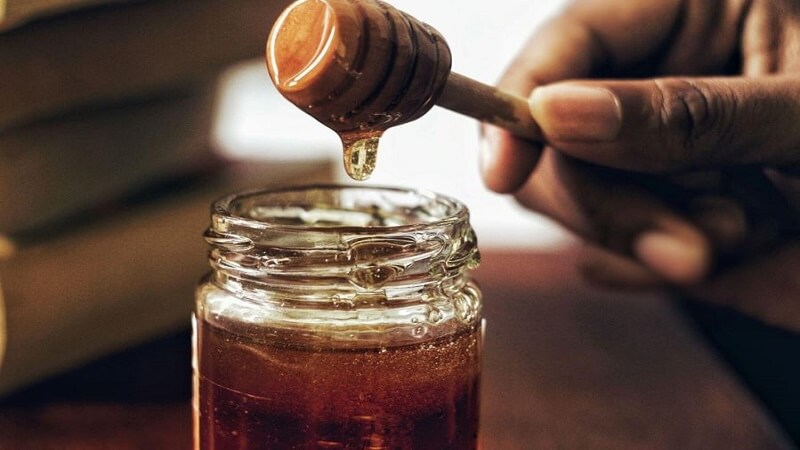Manuka honey has built a strong reputation in skincare, but it’s also making its way into hair products—especially conditioners. These formulas promise softer strands, better moisture retention, and even scalp support. But like any trending ingredient, manuka honey works best when used the right way.
Not every conditioner with honey on the label delivers the same result. Some use it as a buzzword with barely any in the mix. Others pair it with harsh additives that cancel out the benefits. Understanding what manuka honey actually does—and how to apply it properly—can help you get real results.
This blog walks you through how manuka honey conditioner works, how to use it, and what to expect if you add it to your regular routine.
What Makes Manuka Honey Different From Regular Honey
Not all honey is the same. Manuka honey comes from bees that pollinate the manuka bush, which grows mainly in New Zealand. It’s known for its high concentration of methylglyoxal, a compound with antibacterial and anti-inflammatory properties. That’s what sets it apart from standard honey found in most grocery stores.
The texture is thicker, the color is darker, and the composition is more stable. These traits make manuka honey a common ingredient in medical dressings and skincare. In hair products, it brings those same qualities to the scalp and strands—hydrating, soothing, and protecting with more staying power than other types of honey.
This isn’t about sweetness or scent. Manuka honey works as a functional ingredient, not a filler. It holds moisture, helps calm irritated skin, and may support the scalp’s barrier when used in a well-formulated conditioner. That’s why it’s becoming a go-to for people with dry, coarse, or chemically treated hair.
What Manuka Honey Does in Conditioner
Manuka honey draws in moisture and helps the hair hold onto it. As a humectant, it attracts water from the air and pulls it into the strand, which is especially useful for dry or porous hair that loses moisture quickly. When blended into a conditioner, it supports hydration without making the hair feel greasy or coated.
It also helps smooth the outer layer of the hair—the cuticle—so light reflects better and the texture feels softer. This makes detangling easier and reduces frizz after drying. Some users also report better elasticity, which means less breakage from brushing or styling.
Manuka honey may also offer benefits for the scalp. Its natural antimicrobial properties can help calm minor irritation and support a healthier skin barrier. It doesn’t replace medical treatments, but it can add comfort for people with mild dryness or flaking.
What to Expect With Regular Use
Manuka honey conditioner doesn’t act like a quick fix. Its effects build over time. With consistent use, hair tends to feel softer, smoother, and less prone to tangling. If your ends are dry or brittle, they may start to feel more flexible and easier to manage within a few washes.
Moisture retention improves gradually. That means less frizz between washes, and fewer flyaways after drying. For color-treated or heat-styled hair, the added hydration helps reduce breakage and gives strands a more even texture.
Some people notice scalp improvement, too. If your skin feels tight or mildly irritated after washing, this kind of formula may offer relief. It won’t treat medical scalp conditions, but it can help maintain comfort and reduce dryness when used regularly.
The key is patience. Manuka honey works best as part of a routine. You won’t see dramatic change overnight, but small improvements add up—especially if you’re switching from a formula that wasn’t doing enough.
Choosing the Right Product
Not every product labeled with manuka honey delivers the same results. Real manuka honey is expensive, so some brands use only trace amounts to justify the label. Check the ingredient list—if manuka honey appears high on the list, there’s likely enough to make a difference. If it’s buried near the bottom, the impact will be minimal.
Avoid conditioners loaded with silicones or drying alcohols, especially if your hair is already dry or damaged. These ingredients can mask the feel of softness without improving hair health over time. Instead, look for formulas that pair manuka honey with ingredients like glycerin, aloe, or lightweight plant oils.
Packaging can be misleading. Don’t rely on the brand name or marketing claims alone. Focus on how the product is built, not how it’s promoted. Products made without harsh additives and built around moisture retention will perform better, even if they don’t carry a luxury price tag.
Pair your conditioner with a gentle shampoo that won’t strip the hair before you even apply it. That way, the manuka honey can do what it’s supposed to—help your hair hold onto moisture and stay soft between washes.
